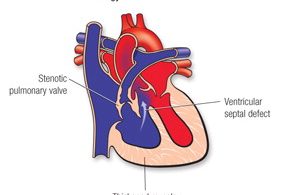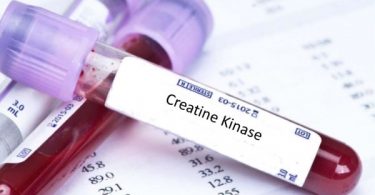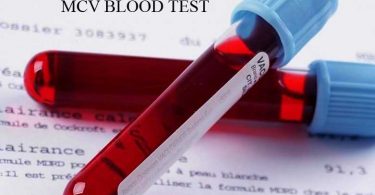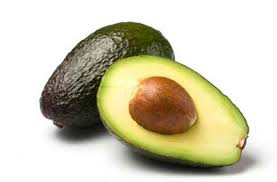Ready to lower your risk of heart disease? These top 5 ways are your best options for avoiding a heart attack or stroke. Even if you only follow one of the five, you’ll be lowering your chances significantly.
So go through this section carefully and discover what you can do to improve your health today.
Lower Your Risk of Heart Disease – 5 Steps
1. FOLLOW A HEART HEALTHY DIET
Following a few simple rules as laid out in our Healthy Heart Diet section can significantly decrease your chances of developing heart disease. A brief summary follows:
A. Limit intake of trans fats and hydrogenated oils found in margarine, fast food, fried food, etc.
B. Limit refined sugar intake from cakes, cookies, candy, etc.
C. Use extra virgin olive oil and garlic in cooking – they can lower cholesterol
D. Add Omega 3 Fatty Acids to your diet – the best source is Fish Oil
Here’s more information on a Heart Healthy Diet
2. EXERCISE REGULARLY
Developing a steady exercise program as described in our Exercise for Healthy Heart section can also lower your risk of heart disease. A few quick tips:
A. Try to exercise 3-4 times per week, for at least a half hour at a time.
B. Keep your routine going, and start off slow.
C. Always stretch before and after training.
D. Keep yourself hydrated and rest between sets.
Here’s more info on exercise and heart health
3. LEAD A HEALTHY LIFESTYLE
In addition to following a healthy diet and exercise regimen, you should also try to do the following:
A. Stop smoking and avoid second hand smoke – both are major causes of heart disease.
B. Limit your intake of alcohol – excessive alcohol can deplete your body’s supply of vitamins and other nutrients.
C. Try to reduce stress and anxiety – they can lead to high blood pressure and other health conditions.
D. Keep your weight within recommended limits – obesity is a leading cause of heart disease.
Here’s more on how a healthy lifestyle can have a major impact on your overall heart health
4. KEEP TABS ON THE (4) BLOOD INDICATORS OF DEVELOPING HEART DISEASE
Make sure you get tested for increased cholesterol, triglycerides(fat), homocysteine and C Reactive Protein levels, and follow the protocols if any one of these indicators is elevated:
A. If your cholesterol is high, you can lower cholesterol naturally with policosanol, guggulipid and other herbal extracts as well as Fish Oil. Remember, only 20% of your cholesterol comes from what you eat, the other 80% is manufactured by your liver. Read more about lowering cholesterol here.
B. If your triglyceride (fat) levels are too high, lower your carbohydrate and sugar intake. Also, fish oil, Vitamin C, guggulipid and green tea are safe natural ways to lower triglyceride levels. Read more about lowering triglycerides here.
C. If your homocysteine levels are high, you can easily normalize the situation by including B Vitamins in your diet, particularly Folic Acid, Vitamin B6 and Vitamin B12. Read more about lowering homocysteine here.
D. If your C Reactive Protein levels are high, this indicates inflammation in the blood. Fish oil, ginger and MSM will help decrease inflammation naturally. Learn about lowering C Reactive Protein.
For more information on the (4) Blood indicators, visit our here.
5. INCLUDE HEALTHY HEART NUTRIENTS
Due to current processing practices, many of the foods we eat are depleted or even devoid of essential nutrients. So even if you eat foods that should contain certain vitamins and minerals, there’s a good chance that these nutrients are not present.
Therefore, it is a good idea to supplement these nutrients, to make sure your body has what it needs to maintain heart health.
A. Cold water fish is often contaminated or devoid of essential Omega 3’s due to poor manufacturing and handling practices. Therefore you might want to consider a pure molecularly distilled fish oil supplement.
B. Many people are vitamin deficient, due to poor diets, or if they are elderly or sick. Therefore, supplementing vitamins is important. Specifically for the heart, the B Vitamins as well as the antioxidants Vitamin C and Vitamin E are important.
C. As we mentioned to the left, if you have high cholesterol or other heart disease precursors supplementing policosanol, CoQ10, guggulipid, green tea and other important minerals and herbal extracts is important.
D. There are many important nutrients for maintaining heart health as well as general health and wellbeing. There are many amino acids, minerals, enzymes and other nutrients that your body needs to function properly and efficiently, that you might not be getting enough of in your diet.
Find out more about heart healthy nutrients
Lowering Your Heart Disease Risk – What’s the Next Step?
You don’t need to do absolutely everything on this page, but do try your best to incorporate as many as possible. You can always start with a comprehensive blood test. That’s the easiest one. Based on the results of this test you can figure out exactly what you need to concentrate on.
Take a look at your diet to see what kind of changes you can make. Are there certain things you can cut back on? Are there nutrients you can add? What about supplements? A good multivitamin or a high quality fish oil supplement can provide enormous benefits to not only your heart but the rest of your body as well.
Beyond that examine your lifestyle. Do you smoke or drink? Do you do drugs? Do you get regular exercise? Sleep enough? Can you make some changes there? See what modifications you can make to any of your bad habits, however small they may be.
It’s really not hard to lower your risk of heart disease. Start with these 5 major areas and see how you can be on your way to better health today.




